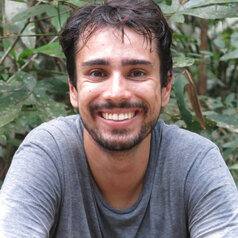
Lucas Ferrante
Pesquisador Vinculado ao Programa de Pós-graduação em Zoologia, Universidade Federal do Amazonas (UFAM)
Lucas Ferrante possui formação em Ciências Biológicas pela Universidade Federal de Alfenas (UNIFAL), Mestrado e Doutorado em Biologia (Ecologia) pelo Instituto Nacional de Pesquisas da Amazônia (INPA), onde em sua tese avaliou as mudanças contemporâneas da Amazônia, dinâmicas epidemiológicas, impactos sobre os povos indígenas e mudanças climáticas e seus efeitos sobre a biodiversidade e pessoas. Foi ganhador do “The Chico Mendes Courage Award” em 2023 pelo Sierra Club, um dos mais importantes prêmios em ecologia no mundo, devido aos seus estudos sobre a rodovia BR-319. Atualmente, é Pesquisador Vinculado ao Programa de Pós-graduação em Zoologia da Universidade Federal do Amazonas (UFAM).
Less ![]()

Lucas Friche
PhD Candidate, Communication Studies, Université de Lorraine
Lucas is a PhD student in communication studies at Université de Lorraine's CREM (Center of Recherche on Mediation) laboratory and at Université de Liège's Liège Game Lab. He studies the issues of territory through the narrative universe of video games, and tackles how video games' rules convey meanings about the relationship between humans and their living space and environment.
His PhD focuses on how maps, and the way they represent territories, are reappropriated in video game language. He is building a methodology for the case analysis of video game maps, which will enable people to better understand how maps help frame the gaming experience. He studies how developers create maps for their games and how players use the word "map" and to what specific element of the gamespace they refer to. His PhD study is focused on the analysis of the Japanese game licence Monster Hunter and how its map' system has evolved through its different titles.
His background is in literature and communication sciences. He completed a master's degree in literature at the University of Aix-Marseille, then a master's degree in communication' sciences at the University of Lorraine.
Less ![]()
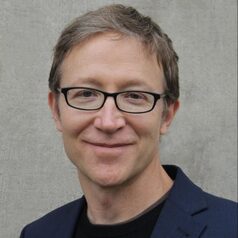
Lucas Graves
Professor in the School of Journalism and Mass Communication, University of Wisconsin-Madison
Lucas Graves is a Professor in the School of Journalism and Mass Communication. His research focuses on new organizations and practices in the emerging news ecosystem, and more broadly on the challenges digital networks pose to established media and political institutions. His book Deciding What’s True: The Rise of Political Fact-Checking in American Journalism came out in 2016 from Columbia University Press.
Graves writes and speaks widely on topics relating to the news, politics, and new media, including political fact-checking, annotative journalism, net neutrality, and the open-source movement. His work has appeared in the New York Times, the Columbia Journalism Review and the Nieman Journalism Lab at Harvard University, as well as numerous scholarly journals including Journal of Communication, International Journal of Communication, and Journalism: Theory, Practice, Criticism. He is a co-author of The Story So Far: What We Know About the Business of Digital Journalism, from Columbia University Press and the Tow Center for Digital Journalism.
At SJMC Graves teaches both practical and conceptual courses including J618, Mass Media and Political Behavior; J561, Mass Communication and Society; and J335, Intermediate Reporting. He also regularly offers “Data, Fact, Truth,” an advanced graduate seminar on journalism as a form of knowledge production. In 2016 he and colleague Michael Wagner received a Baldwin Idea Grant to develop an innovative explanatory journalism curriculum built around a live fact-checking site.
Graves is affiliated with UW’s Holtz Center for Science & Technology Studies and with the Center for Communication and Democracy. He has been a research fellow at the New America Foundation in Washington, DC, and the Institute for Social and Economic Research and Policy at Columbia University in New York. His research has been supported by the American Press Institute, the Poynter Institute, the Duke Reporters’ Lab and the Reuters Institute for the Study of Journalism.
Before joining the faculty of SJMC, Graves worked as a magazine journalist and as a media and technology analyst. He has written dozens of articles for Wired magazine on topics as varied as citizen journalism, doomsday cults, and the future of advertising; his work has also appeared in Interview, Time Out New York, Food & Wine, The Brooklyn Rail, and many other publications. From 1999 to 2002 Graves was an analyst at Jupiter Research, from New York City and then São Paulo.
Graves received his doctorate and an M.S. in journalism from Columbia University. He holds a B.A. in political science from the University of Chicago. His Twitter handle is @gravesmatter.
Less ![]()

Lucas Hearn
Researcher, Flinders University
I completed my PhD in 2022 on the evolution of sociality in Australian native bees. I have a keen interest in the evolution, ecology and biodiversity of insects.
Less ![]()

Lucas Henneman
Assistant Professor of Engineering, George Mason University
Lucas Henneman’s research focuses on air pollution and health. He is most interested in telling success stories—for example, about how environmental regulations have improved our air quality and health—and the opportunities to create more success stories by identifying air pollution sources that make people sick. His day-to-day research leverages large datasets and computer models to track pollution after it’s emitted to where it is breathed in by people like us. For example, he found that emission reductions at coal power plants over the last twenty years have left the entire country healthier and increased life expectancy.
Henneman studied environmental engineering through his PhD and then landed a job in public health right after graduation. Through the experience, he learned the importance of communicating complex environmental phenomena to a multidisciplinary audience. He is passionate about giving students the tools they’ll need to measure, model, and communicate information about the environment so that they can lead the world to a healthier future.
Less ![]()

Lucas A. Berenbrok
Associate Professor of Pharmacy and Therapeutics, University of Pittsburgh
Dr. Berenbrok received his PharmD from the University of Pittsburgh School of Pharmacy. Afterwards, he completed a one-year community pharmacy practice residency with Kerr Drug and Walgreens at the University of North Carolina Eshelman School of Pharmacy which focused on enhanced community pharmacy patient care services. He received his Master of Science in Clinical Research at the University of Pittsburgh School of Medicine in 2017 and is Board Certified in Ambulatory Care Pharmacy by the Board of Pharmacy Specialties. His personal mission statement is to cultivate pharmacist leaders who advance pharmacy practice by bettering patient health and medication-related outcomes with multidisciplinary outpatient healthcare teams.
Less ![]()
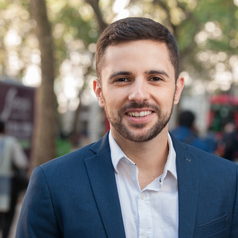
Lucas Amaral Lauriano
Assistant Professor, IÉSEG School of Management
I have a PhD in Management from King's Business School (King's College London). I'm broadly interested in social issues in management. My current research topics are: stigma management, hypocrisy and institutional decoupling in sustainability implementation.
Less ![]()
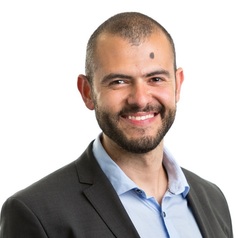
Lucas Calais Ferreira
Postdoctoral Research Fellow, The University of Melbourne
Dr Lucas Calais Ferreira is a Suicide Prevention Australia Postdoctoral Fellow in the Centre for Mental Health, Melbourne School of Population and Global Health, University of Melbourne, and the Centre for Adolescent Health, Murdoch Children's Research Institute and Royal Children's Hospital Melbourne. His research focuses on social determinants and their impact on people's lives, particularly for young people involved in the justice system.
Less ![]()

Lucentezza Napitupulu
Adjunct associate, Universitas Indonesia
Lucentezza Napitupulu teaches environmental economics at the Department of Economics, Universitas Indonesia. She focuses her current research on nature's contribution to human wellbeing, in food systems, fisheries, land use policy in Indonesia, toward equitable and sustainable development.
Less ![]()
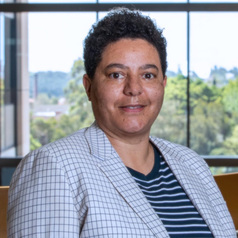
Lucette Cysique
Senior Research Fellow, Viral Immunology Systems Program, The Kirby Institute, UNSW Sydney
A/Prof Lucette Cysique is a cross-disciplinary neuropsychologist with extensive neuroimaging training and long-term experience with neuro-, viral and immune biomarkers. She leads a research program into the neurocognitive complications in major infectious diseases (COVID-19, HIV) and their main comorbidities: brain pathological ageing, cardiovascular diseases, and depressive disorders. Her appointment in the Viral Immunology Systems Program at the Kirby Institute involves the overseeing the Australian Partnership for Preparedness Research on Infectious Disease Emergencies (APPRISE) Long COVID Initiative. Working in global epidemies, Dr. Cysique has extensive experience in cross-cultural neuropsychology. Dr. Cysique has held major international and national research responsibilities, with associated funding. She has led the research on more than 40 national and international cohort studies/trials.
Less ![]()

Lucette Lanyon
Lecturer in Speech Pathology, School of Allied Health, Human Services and Sport; Research Affiliate in the Centre for Research Excellence in Aphasia Recovery and Rehabilitation, La Trobe University
Dr Lucette Lanyon is a lecturer and researcher in the School of Allied Health, Human Services and Sport at La Trobe University and is a research affiliate with the Centre of Research Excellence in Aphasia Recovery and Rehabilitation. She completed her doctoral studies in 2017 through La Trobe University. Lucette has worked as a speech pathologist in a wide range of acute, sub-acute and outpatient health settings.
Lucette's primary research focus is on optimising the long-term health and well-being outcomes of people with acquired brain injury and age-related, chronic conditions through service design and implementation. She has extensive experience developing and implementing inclusive research protocols in the area of cognitive-communication disability.
Less ![]()
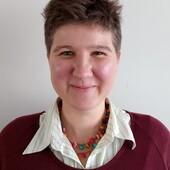

Lucía Alonso-Pedrero
Investigadora en Farmacia, Universidad de Navarra
PHARMACIST PhD
“A positive-thinking, self- motivated and high achieving person who have a relentless determination to have an exciting and successful career”
EDUCATION
PhD at the Department of Food Science and Physiology, University of
Navarra (Pamplona/Spain), September 2017 to November 2021.
Bachelor’s degree in Optics, Optometry and Audiology, CEUSan Pablo (Madrid/Spain), September 2016 to –
Erasmus programme, University of Wolverhampton (Wolverhampton/UK), September 2015 to January 2016.
University Degree- Pharmacy, University of Navarra (Pamplona/ Spain), September 2011 to June 2016.
TEACHING COLLABORATION
Subject: Human Physiology -180 hours in Pharmacy, Human Nutrition and Dietetics, Biology, Biochemistry and Nurse degrees (Spanish), University of Navarra (Pamplona/Spain), September 2017 to December 2019.
Subject: International Trends in Pharmaceutical and NutritionalScience -10 hours in Pharmacy and Human Nutrition and Dietetics degrees (English), University of Navarra (Pamplona/Spain), January 2019 to March 2019.
Clinical session of Psychiatry and Medicine entitled: “Effects of antidepressant and antipsychotic use on weight gain: A systematicReview” at the department of Psychiatry and Psychologic Medicine at Clínica Universidad de Navarra (Pamplona, Spain), 11th of December 2019
PUBLICATIONS
Research articles (1st AUTHOR)
Effects of antidepressant and antipsychotic use on weight gain:A systematic review. Obes Rev. (Q1) 2019. doi: 10.1111/obr.12934
Ultra-processed food consumption and the risk of short telomeres in an elderly population of the Seguimiento Universidad de Navarra (SUN) Cohort. Am J Clin Nutr. (Q1) 2020. doi: 10.1093/ajcn/nqaa075.
Association between Ideal Cardiovascular Health and telomere length in subjects over 55 years old from the SUN cohort. RevEsp Cardiol. (Q1) 2021. doi: 10.1016/j.rec.2021.04.002
Dietary exposure to polychlorinated biphenyls and telomere length in subjects over 55 years old from the SUN project. J. Epidemiol. Community Health. (Q1) doi: 10.3390/nu14020353
Other research articles
Higher adherence to an empirically derived Mediterranean dietary pattern is positively associated with telomere length: the Seguimiento Universidad de Navarra (SUN) project. Br J Nutr. (Q3) 2020. doi: 10.1017/S0007114520004274
Association between diet quality indexes and the risk of short telomeres in an elderly population of the SUN project. Clin Nutr. (Q1) 2020. doi: 10.1016/j.clnu.2019.11.003
Circulating microRNAs in girls with abdominal obesity: miR-221-3p as a biomarker of response to weight loss interventions. Pediatr Obes. Q1. doi: 10.1111/ijpo.12910
Book chapters
1st edition. Obesity: Oxidative Stress and Dietary Antioxidants, edited by Drs. Marti and Aguilera. Elsevier (in press). ISBN 9780128125045. Aging, telomere integrity and antioxidant food. Chapter 12.
CONGRESS PRESENTATIONS
International: Posters: 27th ECO Online September 1st-4th, 2020;26th ECO, Glasgow-UK Apr 28th- May 1st, 2019; 25th ECO, Vienna- Austria, May 23rd- 26th, 2018.
National: Poster: XV Congreso SEEDO, Vigo, March 13th-15th 2019; XII Jornada de Investigación y de ciencias experimentalesy de la salud de la Universidad de Navarra/Pamplona, April 2nd, 2019.
SCHOLARSHIPS
-La Caixa Banking Fundation, Caja Navarra and La Caixa, October2019 to August 2021.
-Asociación de Amigos scholarship, University of Navarra (Pamplona/Spain), September 2017 to September 2019.
-SEEDO Scholarship, XV SEEDO Congress (Vigo/Spain), March13th-15th, 2019.
-EASO travel grant, ECO 2019 (Glasgow/UK), April 28th-May 1st,2019
PROFESSIONAL EXPERIENCE
Associated Pharmacist, Farmacia Paloma Pedrero (Pamplona/ Spain), August 2016 to August 2017.
Supervised practices at pharmacy, Farmacia Aurora Rosino (Pam- plona/Spain), May 2016 to July 2016.
Supervised practices at hospital Clínica San Miguel (Pamplona/ Spain), February 2016 to April 2016.
Supervised practices, Farmacia Paloma Pedrero (Pamplona/ Spain), January 2015 to December 2015.
Supervised practices, Farmacia Trébol Betanzos (Madrid/Spain),July 2014
LANGUAGES
Spanish- Native language English- Advanced level French- Elementary level
OTHER INFORMATION: Piano lessons (2002-2011) and Musical language (2004 to 2009) at Escuela Duquesa Pimentel (Benavente/Spain).
SOFTWARE SKILLS: STATA, Python, Unycop, Bitfarma, Pub-med, Web of Science, UCSC GENOME BROWSER, Portal NCBI, Gene and Genecards, OMIM, Chemicalize, standard office software.
SOFT SKILLS: Creativity, team work, leadership capacity, organization, discipline, speed up decision-making, stress tolerance, resilience and flexibility.
DRIVING LICENCE - Yes
INTERESTS: Fashion, Art, Music, Wine world, Mountaineering,
Voyages.
Less ![]()
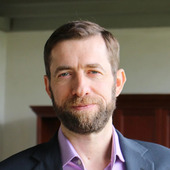
Luciano Ciravegna
Professor and Director of Research at INCAE Business School, INCAE Business School
Less ![]()

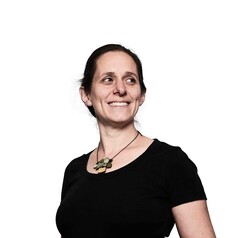
Lucie Middlemiss
Professor in Environment and Society, University of Leeds
Prof. Lucie Middlemiss is Professor of Environment and Society in the Sustainability Research Institute, at the University of Leeds in the UK. She wrote the first textbook on Sustainable Consumption (Routledge, 2018), and has research interests in sustainable consumption, energy poverty and participation in sustainable development. Her research on energy poverty brings together qualitative insights into the lived experience (including the first paper to use this term in 2015), with critical policy analysis (notably a critique of English policy in this area in 2017). She is motivated by connecting deep understandings of energy consumption in daily life, with planning, measuring, monitoring and decision-making by policy-makers and practitioners. In more recent work, she has led a team conducting secondary qualitative analysis of lived experience data (2019 and 2020), resulting in insights into the importance of social relations in energy consumption (see also 2020 in Nature Energy). She was also part of a team which produced a white paper on energy poverty for the Netherlands in 2020: translating state of the art academic thinking on this topic into concrete policy recommendations. She is currently working on three projects: Wellbased, a EU project on health and energy poverty, Whole Person Whole Place, looking at the role of social relations in energy renovation, and Understanding Family and Community vulnerability in the transition to Net Zero.
Less ![]()
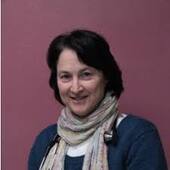

Lucinda Grummitt
Postdoctoral Research Fellow, The Matilda Centre for Research in Mental Health and Substance Use, University of Sydney
Lucy’s research focuses on the prevention of mental health and substance use problems among adolescents, with a particular focus on populations that suffer disproportionate rates of mental illness, such as those exposed to childhood adversity and trauma, and gender- and sexuality- diverse (LGBTQA+) young people. She is passionate about school-based prevention, and currently leads the development and national randomised controlled trial of a universal trauma-aware and gender-inclusive mental health prevention program for Australian students. She is committed to youth involvement in the research process and coordinates a Youth Advisory Board, engaging a diverse group of 10 Australians aged 16-25 to ensure youth perspectives are integrated into research.
Less ![]()

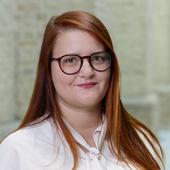
Lucrezia Nava
Assistant Professor, Climate Psychology, Carbon Dioxide Removals, Business School, University of Exeter
Less ![]()

Lucy Blake
Research Associate at the Centre for Family Research, University of Cambridge
As a Research Associate at the Centre for Family Research at the University of Cambridge, I conduct and coordinate studies that focus on family relationships and psychological well-being.
My research has focused on families created through assisted reproductive technologies, such as sperm donation, egg donation, and surrogacy. I have explored how parents explain their use of donor eggs, sperm or surrogates, to their young children. I have also examined how children think and feel about their families.
More recently, my research has focused on the breakdown of family relationships, sometimes referred to as family estrangement. This relatively common phenomenon has received little research attention. The aim of my research is to expand upon what we know about the causes, processes and consequences of relationship breakdown between family members, and to explore how estrangement affects and influences psychological well-being.
I am committed to conducting high quality research on families that is of use to policy makers, practitioners, and families themselves. There is a lot to gain from moving beyond assumptions and studying families as they actually are.
Less ![]()

Lucy Carruthers
Postdoctoral Researcher, Department of Coastal Studies, East Carolina University
My research investigates coastal ecosystems in small island developing states, including the Maldives, with a focus on mangroves. I am particularly interested in examining the impacts of climate change on their health and carbon storage dynamics. By employing a multidisciplinary approach that combines remote sensing and sediment geochemistry, I aim to develop a deeper understanding of these critical ecosystems and how they may respond to climatic changes in the coming decades.
Less ![]()
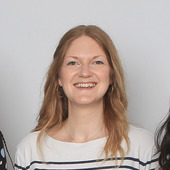

Lucy Crouch
Research Fellow, Institute of Microbiology and Infection, Department of Microbes, Infection and Microbiomes, School of Infection, Inflammation and Immunology, College of Medicine and Health, University of Birmingham
Less ![]()
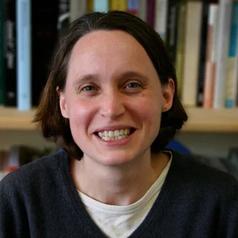
Lucy Donkin
Senior lecturer in History and History of Art, University of Bristol
I work within and between the disciplines of History and History of Art, specialising in visual and material culture. My research interests lie in medieval perceptions of place, with particular reference to Italy and its relationships with the wider Mediterranean region and transalpine Europe.
My previous research primarily focused on sacred space, especially the creation, use, and decoration of holy ground. My book Standing on Holy Ground in the Middle Ages (Cornell University Press / Combined Academic Publishers) examines themes such as the phenomenon of holy footprints, the liturgical shaping of consecrated space, and the design and function of ecclesiastical floor decoration. I have a related interest in medieval cartography and co-edited with Dr Hanna Vorholt (University of York) a volume of essays on maps of Jerusalem: Imagining Jerusalem in the Medieval West. I have also published on the representation of subterranean environments in religious art from regions specialising in mining and have been involved in collaborative research on cultural responses to seismic activity.
My current research explores the materiality and portability of place as this was exemplified by the symbolic movement of soil. The main project explores spiritual, political, and environmental connotations of moving earth to and from the city of Rome during the Middle Ages and early modern period. I am also interested in understandings of soil and the environment within the medieval Islamic world and in modern uses of earth in contexts of commemoration and migration.
I am a member of the University of Bristol Centre for Medieval Studies, the Centre for Environmental Humanities, and Migration Mobilities Bristol.
My research interests inform my teaching for the History and History of Art departments. I contribute to a number of team-taught units including Episodes in Global Visual Culture, The Medieval World, Crusading Cultures, and Wild Things. I teach History of Art units on Artistic Exchange in the Mediterranean and Vision, and a History unit on Travel and Trade in the Global Middle Ages. I also co-teach an interdisciplinary unit on The Italian City with colleagues from History of Art and the Department of Italian.
Less ![]()
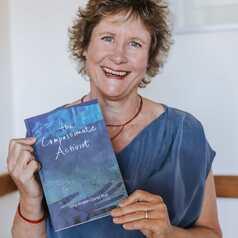
Lucy Draper-Clarke
Research Associate in Compassion, University of the Witwatersrand
I am a retreat facilitator, mindfulness mentor and researcher-practitioner, with a PhD in mindfulness and teacher education. I lead courses in mindfulness and compassion and run retreats throughout southern Africa. As a research associate at the University of the Witwatersrand, with Drama for Life, I supervise postgraduate students. My current focus on compassionate activism for a life-sustaining society aims to offer changemakers the skills they need to alleviate burnout, increase resilience, and cultivate wise, compassionate action. I have taken refuge in the Karma Kagyu School of Buddhism and the Engaged Buddhism tradition of Thich Nhat Hanh. By attending regular retreats to deepen my own meditation practice, I am learning how ancient wisdom traditions can offer support as we address the many crises of modern life.
Less ![]()

Lucy Furfaro
NHMRC Emerging Leadership Fellow, The University of Western Australia
Dr Furfaro is a NHMRC Emerging Leadership Fellow within the Medical School, Division of Obstetrics and Gynaecology. As a microbiologist, she is interested in microbes in the context of pregnancy and early life. Her research explores targeted antibiotic alternatives such as bacteriophage therapy to treat leading neonatal pathogens such as Group B Streptococcus. Lucy has a strong discovery to translation focus to her research and is an active science communicator.
Less ![]()

Lucy Gannon
Senior Lecturer and Programme Leader BA in Interior Design, Manchester Metropolitan University
Lucy Gannon is a Senior Lecturer and Programme Leader BA (Hons) Interior Design at Manchester School of Art, where she predominately teaches final year students in realizing their ambitions. The course is concerned with the occupation of space, how it is used and importantly, how it is experienced. The course promotes the understanding and subsequent remodelling of existing spaces, in order to create meaningful interventions.
Lucy shares her time between academia and the creative practice Broadbent Studio, where she forms part of a small design team. Broadbent Studio has a strong design philosophy with a varied and rewarding portfolio. Lucy has significantly contributed to a number of projects surrounding placemaking and storytelling such as Seeds of Hope, Daresbury Linear Park: Light Gardens, Bradford Pit Memorial, Propellors of the City, and most recently Pilgrim Porch in Chester Cathedral.
Lucy’s practice by nature is cross-disciplinary, and she takes on a range a roles from facilitator, listener, mentor and researcher to designer, visualiser, communicator and maker. She is a member of the Manchester School of Art, Design Research Hub, and sits under the theme of Community, Culture and Heritage.
Re-occuring themes through her research and outcomes surround memory in the everyday and the physical act of remembrance. Lucy is interested in the notion of memory, the materiality of memory and the link to environments and identity. She is concerned with how our living identity is informed and how it defines or affects future living. Through analysing the act of movement and dwelling, she intends to create environments that encourage an investment of time and a sense of enquiry or promote activity. She recently spoke at a AMPS conference with Stephen Broadbent on the paper 'Encapsualting memorry to forge future identities.'
Less ![]()
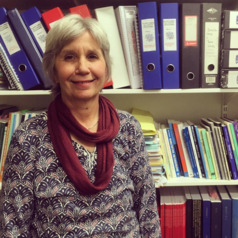
Lucy Gilson
Professor and Head, Health Policy and Systems Division, School of Public Health, University of Cape Town
Dr Lucy Gilson is Professor and Head, Health Policy and Systems Division, School of Public Health, University of Cape Town. Her research addresses the political, social and ethical dimensions of health policies and health systems, with a particular focus on decision-making, leadership and governance. Her work of conceptualizing and investigating health system resilience began before COVID, but has continued over time. She also supports a range of capacity strengthening and system support activities.
Less ![]()

Lucy Janes
PhD Candidate, Literature and Languages, University of Stirling
I have an MA in Modern History (University of Glasgow, 1995) and an MSc in Information Management and Preservation (University of Glasgow, 2021)
For my PhD research I am investigating and contextualising the cultural and social history of swimming as a popular leisure pursuit in Glasgow for 100 years from 1850 to 1950,
I'm using archive, literary and historical sources to uncover the intangible history of swimming culture, as well as investigating the surviving built heritage of sites of swimming
The work is exploring the experiences of diverse men, women and children who swam in the River Clyde, private baths and clubs and public swimming pools.
Less ![]()

Lucy Kelly
Associate Professor in Education, University of Bristol
Dr Lucy Kelly is an Associate Professor in Education at the University of Bristol, primarily working with PGCE English trainee teachers. She advocates that trainee teachers see themselves as their own biggest resource in the classroom, and that they prioritise their wellbeing from the outset. Her main research interest is reflective practice as a positive tool for educator wellbeing, and she is Principal Investigator for the 'Reimagining the Diary' project, which uses a multimodal Diary Toolkit and ongoing wellbeing CPD to support educators across the country. The team have now launched a student Diary Toolkit, which is currently being tested by 250 Year 12 pupils. Lucy has written numerous articles on educator wellbeing and reflective practice, and presented her work on podcasts, at conferences and on the radio. 'Reimagining the Diary: reflective practice as a positive tool for educator wellbeing' is Lucy's first book.
Less ![]()
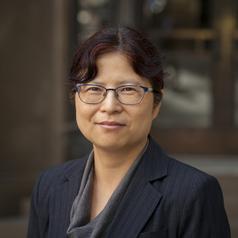
Lucy Lu
Adjunct Senior Lecturer, Faculty of Education and Social Work, University of Sydney
Dr Lucy Lu spent 20 years in the NSW Department of Education leading multidisciplinary teams responsible for large-scale data collections, reporting, data policy and standards, and statistical and psychometric analysis to enhance decision-making. Lucy has also led multiple research projects in areas of practice, measurement and funding modelling, including expanding the evidence base to support the NSW Department’s resource allocation model and School Excellence Framework.
Less ![]()
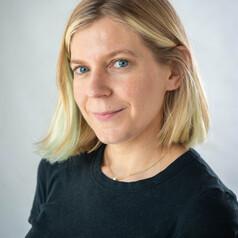
Lucy Morieson
Lecturer in Politics and Communication , RMIT University
I am interested in communication, journalism, news and politics (in the broadest sense). My PhD thesis addressed the development of online news in Australia and the changing professional journalistic roles and standards that were negotiated through that transition.
For a brief period before returning to university to get my PhD, I worked with Misha Ketchell at Crikey, and maintain a keen interest in local news. I also spent 5 years (2015-2020) living in the US, and so have expanded my knowledge and research interests to include the American political and media landscapes.
At RMIT, I teach courses about politics and economies to communication students. I'm currently working on a number of papers: about factchecking and its place in HASS teaching; on Stephen Colbert's shift from late night entertainer to political watchdog; and on the view from Australia of the mediatization of the US election.
Less ![]()

Lucy Neave
Associate Professor, English, School of Literature, Languages and Linguistics, Australian National University
Less ![]()
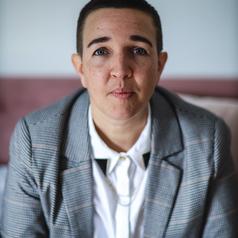
Lucy Nicholas
Associate professor Sexualities and Genders / Sociology, Western Sydney University
I am a researcher and university lecturer in gender, sexuality, sociology and politics. I work at Western Sydney University in the School of Social Sciences, and am director of Sexualities and Genders Research.
I did my MPhil at Griffith University, QLD, Australia, and my PhD at University of Edinburgh, Scotland, UK, before working at Portsmouth University, UK, Swinburne University, Melbourne Australia, and finally to WSU in 2019.
My research is interested in diversity broadly, focusing on genders and sexualities, social theory, feminisms, and whiteness. I am committed to research that improves the lives of those who are othered and subordinated.
Less ![]()
- Market Data























